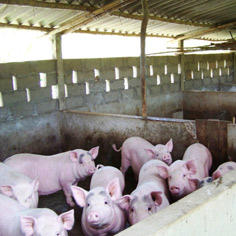
Humanitarian and Development
Place
Provinces of Hoa Binh, Dong Hoï and Hué, Vietnam
Sponsor
Geneviève Ferone
Grant(s)
20,000 € to the Selection Committee at 2011/04/05
Project leader
For the last 10 years, Zebunet has been helping improve the economic situation of peasants by financing the purchase of breeding livestock. The funds released by its members, in the form of an "animal savings plan" have financed projects in five countries (Niger, Mauritania, Burkina-Faso, Madagascar and Vietnam), with the cooperation of local partners (nonprofits, NGOs, etc). The first pig breeding project was carried out in Vietnam in 2001 in partnership with Vétérinaires Sans Frontières. So far, Zebunet has financed the purchase of over 5 000 animals in favor of more than 2 000 families.
Anaerobic digesters to improve the energy performance of the farms
The Zebunet project consists in commissioning a hundred anaerobic digesters in three provinces of Vietnam where the nonprofit has already been active (Hoa Binh, Dong Hoï and Hué), among families of poor peasants who have received an outreach loan to buy pigs. An anaerobic digester helps produce biogas (mainly methane) from organic matter (in the present case, animal manure): a way to produce energy from waste. The operation is accompanied by local partners and the technical support of the Research Institute for the Development of Hanoi. Ten pilot anaerobic digesters have been installed successfully in the province of Hué: this test, plus Zebunet's thorough familiarity with the area, the local authorities and operational partners, are a guarantee of a seriousness and success.

